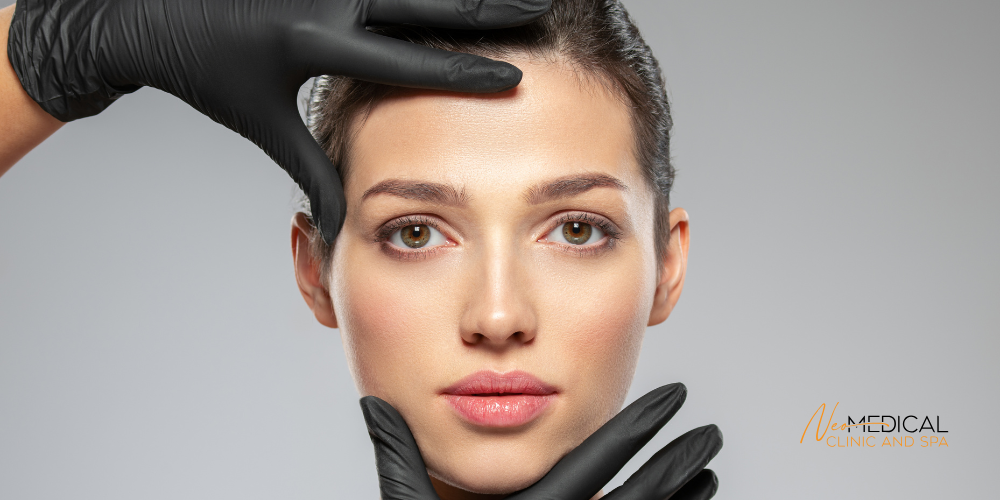Undergoing a hair transplant is a significant step toward restoring not only your hair but also your confidence and sense of self. At our Las Vegas clinic, led by Dr. Reza Mojtabavi, MD, we understand the emotional and physical investment that goes into hair restoration. Dr. Mojtabavi’s own experience with hair loss and his life-changing treatment have made him a passionate advocate and expert in the field. He brings that same dedication to every patient, ensuring that you receive state-of-the-art, personalized care.
If you're considering hair restoration in Las Vegas, or you've already scheduled your procedure, this guide will walk you through the essential aftercare steps to ensure a successful recovery and optimal results.
Immediate Aftercare: The First 48 Hours
The first 48 hours after your hair transplant are crucial to the healing process. During this period, it’s important to follow these guidelines:
- Keep Your Head Elevated: Sleeping with your head elevated at a 45-degree angle can help reduce swelling around the transplant area.
- Avoid Touching the Grafts: Resist the urge to touch or scratch your scalp. The newly implanted follicles are delicate, and touching them can affect their ability to take root.
- Skip the Shampoo for Now: You’ll need to avoid washing your hair for at least 48 hours. After that, Dr. Mojtabavi will provide specific instructions on how to gently cleanse your scalp using a mild shampoo.
The First Week: Reducing Swelling and Promoting Healing
Swelling is a common side effect after hair transplant surgery, especially around the forehead and eyes. To minimize this, you can:
- Apply Cold Compresses: Avoid direct application to the graft area, but placing a cold compress on your forehead can help with swelling.
- Take Prescribed Medications: Dr. Mojtabavi will likely prescribe anti-inflammatory medications or pain relievers to keep you comfortable during recovery.
- Limit Physical Activity: It’s important to avoid strenuous activities, including exercise, for at least a week to prevent excessive sweating or pressure on the scalp.
Returning to Work: What You Need to Know
One of the most common questions patients ask is when they can return to work. The answer depends on the nature of your job. If your work environment is clean and involves minimal physical exertion, you can usually return within 3 to 5 days. However, if your job requires heavy lifting or exposure to dirt and dust, you may need to take a full week off to ensure optimal healing.
Dr. Mojtabavi will provide a personalized recommendation based on your specific case, ensuring that you’re ready to return without risking your results.
Wearing Hats: When Is It Safe?
Many patients are eager to know when they can safely wear a hat after their hair transplant. While hats can protect your scalp from sun exposure, wearing them too soon can cause friction and disrupt the healing grafts. Typically, you can start wearing a loose-fitting hat about 7 to 10 days after the procedure. Dr. Mojtabavi will let you know when it's safe to resume wearing your favorite headgear without compromising your results.
Long-Term Aftercare: Ensuring Lasting Results
Proper long-term care is essential for maintaining the results of your hair transplant. Here are some tips to keep your newly restored hair looking its best:
- Continue Gentle Washing: You’ll need to follow a gentle washing routine for the first few weeks to avoid disturbing the new follicles.
- Protect Your Scalp from the Sun: Avoid direct sun exposure for at least 3 months. If you must be outside, wear a loose-fitting hat or apply sunscreen to your scalp.
- Avoid Hair Styling Products: For at least a month, steer clear of hair gels, sprays, and other styling products that could irritate your scalp.
Trust the Expert: Dr. Reza Mojtabavi
Choosing the right specialist for your hair restoration journey is crucial, and Dr. Reza Mojtabavi is a true leader in the field. His own battle with hair loss has fueled his passion to help others regain their confidence through advanced hair restoration treatments. His approach combines cutting-edge techniques with a deep understanding of the emotional impact hair loss can have on an individual.
At our Las Vegas clinic, Dr. Mojtabavi tailors each treatment plan to fit your unique needs and goals, ensuring that you achieve the best possible results.
Conclusion
Hair transplant aftercare is a key factor in the success of your procedure. By following Dr. Mojtabavi’s expert advice and the aftercare guidelines provided, you can promote faster healing and long-lasting results. If you're ready to embark on your hair restoration journey, or if you have questions about the aftercare process, don't hesitate to reach out to our team.
Interested in learning more about hair restoration? Call us today at (702) 879-9976 to schedule your consultation and discover how FUE can transform your hair and your life.






